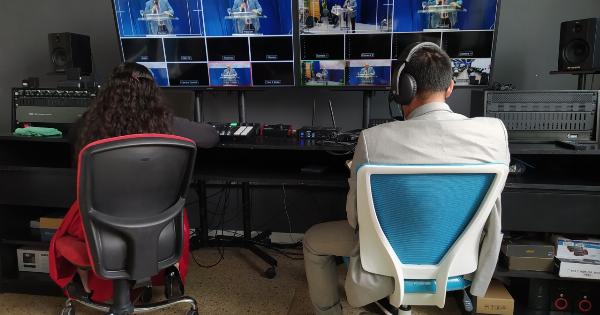Narcissism is a psychological trait characterized by an inflated sense of self-importance and an extreme need for admiration and attention. Narcissists often display a lack of empathy and disregard for others.
One of the most challenging aspects of dealing with a narcissist is their inability to apologize and acknowledge their wrongdoings. This article explores the logic behind this behavior.
The Narcissistic Ego
Narcissists have a fragile ego that relies on maintaining a grandiose self-image. They believe they are superior to others and possess a sense of entitlement.
Apologizing or admitting mistakes threatens their ego and challenges their belief in their own perfection.
The narcissistic ego operates on self-defense mechanisms that protect their fragile self-image. These defense mechanisms, such as denial, projection, and gaslighting, come into play when they are confronted with their wrongdoings.
They refuse to accept any responsibility and deflect blame onto others.
The Fear of Vulnerability
Apologizing requires vulnerability, as it involves admitting fault and accepting the negative consequences of one’s actions. For a narcissist, vulnerability is perceived as weakness.
They fear that apologizing would undermine their power and control over others.
Acknowledging their wrongs also means facing criticism and judgment, which the narcissist cannot tolerate. They would rather maintain their self-aggrandizing façade than genuinely apologize and risk being seen as flawed or imperfect.
Avoiding Accountability
Narcissists have a deep-seated aversion to accountability. They believe that rules and obligations do not apply to them.
Apologizing and acknowledging their wrongs would mean accepting that they are accountable for their actions, something a narcissist cannot bear.
Furthermore, holding themselves accountable would challenge their belief that they are exceptional and beyond reproach. They prefer to shift blame, manipulate others, or even rewrite history to preserve their self-perceived superiority.
The Need for Control
Narcissists strive to maintain control over their surroundings and relationships. Apologizing requires relinquishing some control and acknowledging the autonomy and agency of others. This is contrary to their desire for dominance and power.
By refusing to apologize, narcissists seek to invalidate the experiences and emotions of others.
They gaslight and demean the feelings of those they have wronged, further exerting control over the narrative and ensuring that their version of reality prevails.
Protecting the False Self
Narcissists construct a false self-image to shield their fragile ego from criticism and self-doubt. This false self is built on a grandiose and flawless persona.
Apologizing would mean exposing the cracks in this façade and acknowledging their imperfections, which is unacceptable for a narcissist.
Admitting fault would also require examining their emotions and vulnerabilities, which a narcissist actively avoids. An apology would force them to confront their true selves and face the fear of inadequacy lurking beneath the surface.
The Lack of Empathy
One of the defining traits of narcissism is a lack of empathy. Narcissists struggle to understand or connect with the emotions and experiences of others.
Without genuine empathy, they are incapable of comprehending the impact of their actions on those around them.
Apologizing requires empathy and an understanding of how one’s behavior has hurt or affected others. Narcissists lack this capacity, making it almost impossible for them to apologize sincerely.
The Need for Admiration
Narcissists crave constant admiration and validation from others. Apologizing and acknowledging their wrongs would potentially tarnish their image of perfection in the eyes of others.
They fear that admitting fault would make them less deserving of admiration and respect.
Furthermore, narcissists often surround themselves with enablers who reinforce their beliefs and protect them from criticism.
These enablers may encourage the narcissist’s inability to apologize by continuously validating their actions, further reinforcing their inflated ego.
Maintaining Control Over Relationships
Narcissists seek to maintain control and dominance in their relationships. By not apologizing or acknowledging their wrongs, they keep the power dynamic skewed in their favor.
Apologizing would mean acknowledging an equal footing and displaying vulnerability, which they view as a threat to their control.
Instead, narcissists manipulate and gaslight their partners, friends, or family members into believing that they are always in the wrong. Their inability to apologize becomes a tool for emotional manipulation and maintaining their position of power.
Conclusion
Narcissists’ inability to apologize and acknowledge their wrongdoings stems from their fragile ego, fear of vulnerability, aversion to accountability, and need for control.
The logic behind this behavior lies in their relentless pursuit of self-preservation and the maintenance of their grandiose self-image.
Dealing with narcissists requires understanding their underlying motivations and realizing that their inability to apologize is not a reflection of your worth or the validity of your feelings.
Setting boundaries, seeking support, and prioritizing your own well-being is crucial when dealing with individuals who cannot or will not acknowledge their wrongs.





























